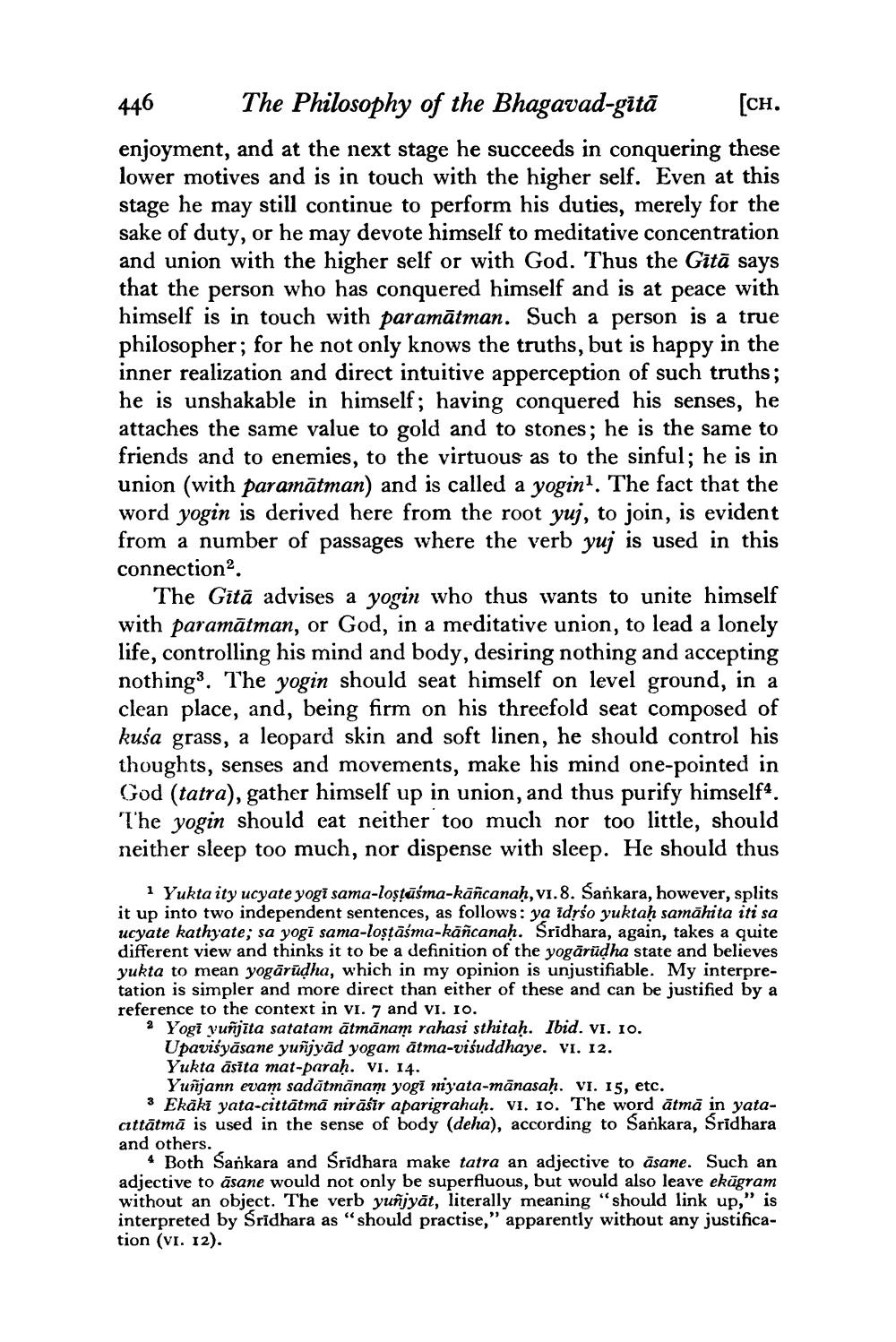________________
446
The Philosophy of the Bhagavad-gitā
[CH.
enjoyment, and at the next stage he succeeds in conquering these lower motives and is in touch with the higher self. Even at this
stage he may still continue to perform his duties, merely for the
sake of duty, or he may devote himself to meditative concentration and union with the higher self or with God. Thus the Gitā says that the person who has conquered himself and is at peace with himself is in touch with paramātman. Such a person is a true philosopher; for he not only knows the truths, but is happy in the inner realization and direct intuitive apperception of such truths; he is unshakable in himself; having conquered his senses, he attaches the same value to gold and to stones; he is the same to friends and to enemies, to the virtuous as to the sinful; he is in union (with paramātman) and is called a yogin1. The fact that the word yogin is derived here from the root yuj, to join, is evident from a number of passages where the verb yuj is used in this connection2.
The Gitā advises a yogin who thus wants to unite himself with paramātman, or God, in a meditative union, to lead a lonely life, controlling his mind and body, desiring nothing and accepting nothing. The yogin should seat himself on level ground, in a clean place, and, being firm on his threefold seat composed of kusa grass, a leopard skin and soft linen, he should control his thoughts, senses and movements, make his mind one-pointed in God (tatra), gather himself up in union, and thus purify himself. The yogin should eat neither too much nor too little, should neither sleep too much, nor dispense with sleep. He should thus
1 Yukta ity ucyate yogi sama-loṣṭāśma-kāñcanaḥ, v1.8. Sankara, however, splits it up into two independent sentences, as follows: ya idrso yuktaḥ samahita iti sa ucyate kathyate; sa yogi sama-loṣṭāśma-kañcanaḥ. Sridhara, again, takes a quite different view and thinks it to be a definition of the yogarudha state and believes yukta to mean yogāruḍha, which in my opinion is unjustifiable. My interpretation is simpler and more direct than either of these and can be justified by a reference to the context in VI. 7 and VI. Io.
2 Yogi yunjita satatam ātmānam rahasi sthitaḥ. Ibid. VI. 10. Upavisyāsane yuñjyād yogam ātma-viśuddhaye. VI. 12. Yukta āsīta mat-paraḥ. VI. 14.
Yunjann evam sadātmānam yogi niyata-mānasaḥ. VI. 15, etc.
3 Ekāki yata-citṭātmā nirāśīr aparigrahaḥ. VI. 10. The word ātmā in yatacittātmā is used in the sense of body (deha), according to Sankara, Śrīdhara
and others.
4 Both Sankara and Śrīdhara make tatra an adjective to asane. Such an adjective to asane would not only be superfluous, but would also leave ekūgram without an object. The verb yuñjyat, literally meaning "should link up," is interpreted by Sridhara as "should practise," apparently without any justification (VI. 12).




